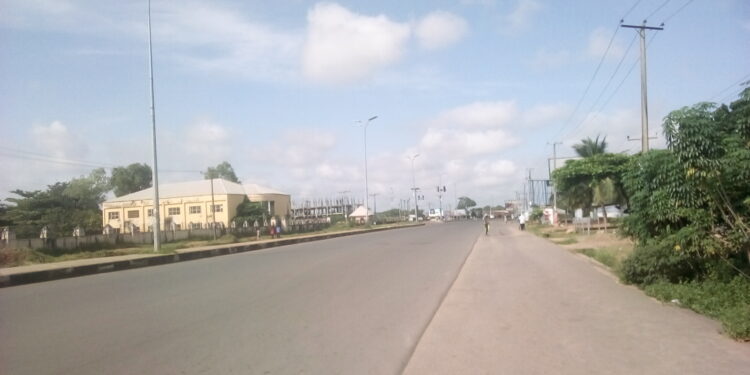The city of Owerri, Imo State, came to a standstill on Monday as residents observed the sit-at-home order issued by the Indigenous People of Biafra (IPOB). The widespread compliance with the directive left roads, markets, and public spaces deserted, crippling both commercial and governmental activities across the capital and its environs.
In a scene reminiscent of past sit-at-home orders, the normally bustling streets of Owerri were eerily silent. Schools, motor parks, filling stations, commercial banks, and government offices were shut down, with major roads like Owerri/Mbaise/Umuahia, Owerri/Onitsha, Owerri/Port Harcourt, and Owerri/Aba completely devoid of traffic. Businesses across the city, including supermarkets, eateries, and hotels, also shuttered their doors, adhering to the order.
Some local youths took advantage of the empty streets by converting them into makeshift football pitches, underscoring the complete halt of daily activities. Meanwhile, a handful of stranded passengers could be seen waiting in vain for commercial vehicles to transport them to their destinations.
Residents, anticipating the disruption, engaged in last-minute shopping sprees the previous day, stocking up on food and other essentials to sustain them during the two-day sit-at-home period. The usually crowded markets were thronged with buyers scrambling to prepare for the enforced shutdown.
The sit-at-home order, often associated with IPOB’s calls for the release of its leader, Nnamdi Kanu, was strictly observed, as businesses feared reprisals for non-compliance. The economic impact of the lockdown continues to weigh heavily on the state, where frequent sit-at-home orders have significantly disrupted commerce and everyday life.
The peaceful, albeit tense, atmosphere highlights the ongoing influence IPOB wields over the region, particularly in light of their renewed campaign for Biafran independence. As the order remains in effect, all eyes are on the government’s response and any potential efforts to restore normalcy to the area.






2 Comments